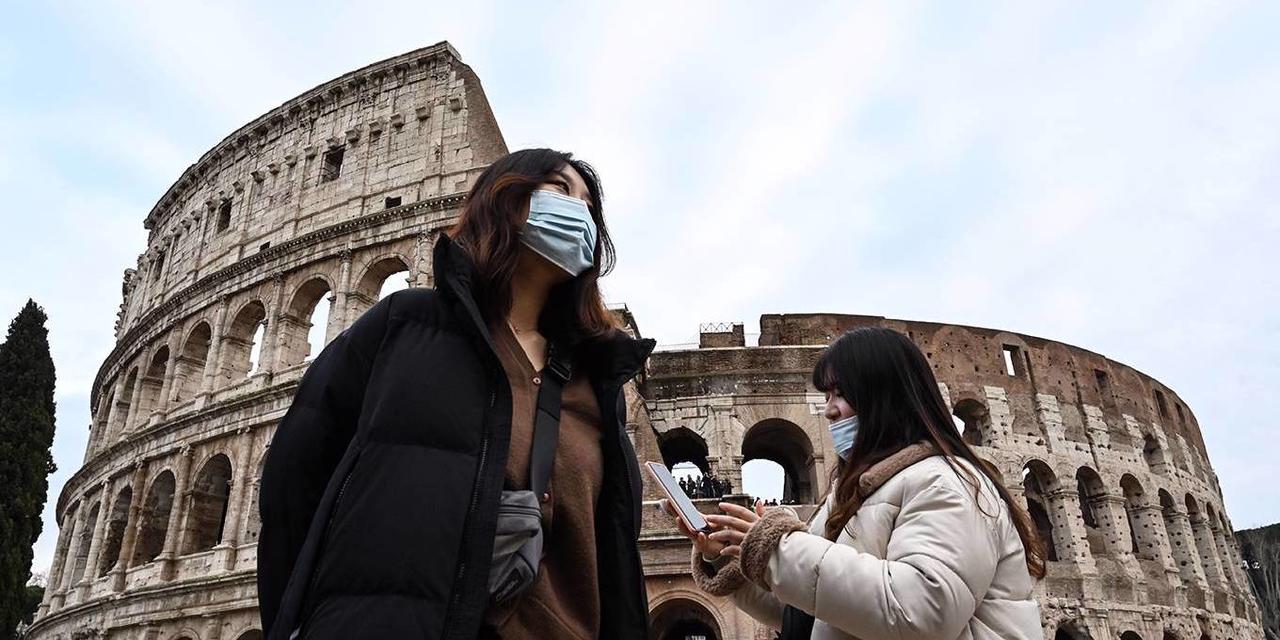Italy's New Affliction
Authored by Paola Subacchi via Project Syndicate,
Northern Italy currently is the center of the COVID-19 outbreak in Europe. So far, 17 Italians have died as a result of the new coronavirus, and 650 have been infected. Schools in the region have been shut, universities have suspended lessons, companies have asked their staff to work from home, and many theaters, cinemas, and bars are closed. The virus caused the cancellation of the last two days of the Venice Carnival, which attracts thousands of visitors every year. And the area south of Milan, where Italy’s first COVID-19 cases were reported, is under quarantine.
Epidemics are not new in Northern Italy, which was at the center of trade routes throughout the Middle Ages and the Renaissance. In fact, Venice was the first city to develop methods to contain and treat virulently contagious diseases. Back then, the authorities isolated people with symptoms in lazarets (ships permanently at anchor and used for quarantine) on islands outside the city, and restricted the movements and interactions of healthy Venetians during a 40-day quarantine period.
Evidence is mixed as to whether these measures were effective. Milan lost almost half its population to the plague in 1630, and Venice lost approximately 30%. But the mortality rate could have been much higher had the authorities not fought the contagion the way they did.
Modern medicine and healthier living standards have greatly reduced the frequency of epidemics, significantly slowed the pace of contagion, and slashed mortality rates. The overall mortality rate from COVID-19 currently is around 34 per thousand, with elderly people and those with health problems being most at risk. Epidemics in early modern Northern Italy, by comparison, had mortality rates of 300-400 per thousand.
The big question now is whether the Italian authorities’ COVID-19 containment measures are commensurate with the scale of the problem, or too draconian.
Moreover, are these steps dictated by genuine public-policy goals, or mainly by political considerations?
Managing critical risks and strengthening resilience are key public-policy objectives. An outbreak of a highly contagious flu in a densely populated area needs to be contained even if the mortality rate is negligible, because an epidemic will cause hospitals and health-care systems in many areas to collapse. And, as with financial crises, it is always better to prevent a crisis than to confront one, because the latter entails huge economic, social, and political costs.
Ex post measures aimed at containing the spread of COVID-19, such as quarantines and travel bans, don’t seem to work in our age of mobility and economic integration. After the United States government announced at the end of January that it would temporarily refuse entry to foreign nationals who had recently traveled within China, Italy’s government banned direct flights to and from China. But this measure – adopted in response to pressure from the populist right-wing League party – will create tensions with China, a major trading partner that buys about $16 billion worth of Italian exports each year. Nor does the flight ban solve the problem of monitoring indirect arrivals to Italy from China.
The ban may rebound on Italy in other ways, too. Its European neighbors, for example, may be tempted to impose entry bans on Italians in order to appease popular anxiety and anti-foreign sentiment. Already, the French far-right leader Marine Le Pen has urged France’s government to suspend the Schengen Agreement and introduce border controls with Italy. And earlier in February, the Austrian authorities briefly blocked trains entering the country from Italy.
Epidemics affect different countries in different ways, and national policymakers must tailor their responses accordingly. At the same time, governments should coordinate measures aimed at protecting health-care workers and vulnerable individuals and countries. The lesson from Italy so far is that a lack of coordination among local governments, coupled with political fragmentation, puts all containment measures at risk by encouraging more people to leave the worst-affected areas. Many university students, for example, have already returned home from Northern Italy. So, containment measures in one place may succeed only in shifting the problem elsewhere.
The current expectation is that the COVID-19 virus will continue to spread within Italy and throughout the rest of Europe. Although the numbers remain tiny – there currently are only 41 confirmed cases in France, for example – the panic level is high enough to open the door to potentially restrictive measures.
Given today’s poisonous political climate, can we be sure that governments will not introduce measures that override existing legislation and restrict individual rights and freedoms? Might people infected with the COVID-19 virus lose their right to health treatment when abroad, for example? Or might they be prevented from returning to their own country, as US President Donald Trump announced would be the case for infected Americans overseas? In that respect, the COVID-19 outbreak has highlighted the absence of an international legal framework to deal with pandemics.
Meanwhile, the outbreak will have a significant impact on the Italian economy, and likely tip it into recession. Northern Italy is the country’s economic engine, with per capita GDP of approximately €35,000 ($38,000) – compared to the national figure of €28,000 – and a 67% employment rate (against 59% nationwide). But major trade events such as the Milan Furniture Fair have been canceled or postponed, business trips have been scrapped, and uncertainty is rife. Furthermore, virus-related cancellations are already hitting the country’s tourism industry, which accounts for 14% of GDP.
Having long been saddled with a sluggish economy – real GDP grew by just 0.2% in 2019 – Italy is now faced with a recession. Along with Germany’s economic slowdown and the uncertainty of Brexit, the country’s COVID-19 affliction is further grim news for Europe.
https://ift.tt/2Tjs5VT
from ZeroHedge News https://ift.tt/2Tjs5VT
via IFTTT


0 comments
Post a Comment